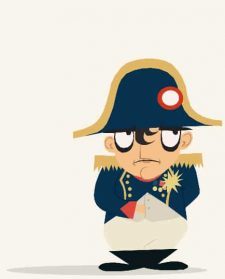
Do you know what Gallicism are? Gallicisms are words from French that have found use in another language. When learning German, you will come across a lot of Gallicisms. They found their way into the German language during the reign of Louis XIV, who was revered across the German aristocracy. Amusement, fashion, cuisine, and the military are all domains using words borrowed from French. For example das Ballett, das Turnier, der Chiffon, der Satin, die Frisur, das Kostüm, der Gobelin, das Dessert, die Kreme, der Kaffee, die Kantine, die Kolonne, der Veteran.
Other words are die Garantie, das Plädoyer, die Eleganz, die Garage, die Garderobe
Verbs ending in –ieren tend to be borrowed from French as well: abonnieren, arrangieren, revanchieren, engagieren, plädieren, frisieren.
Pride and the German language
Till the late eighteenth, lectures at German universities were in Latin, and the German aristocracy spoke French and only plebeians, of which were many, spoke German. All that ended when Napoleon occupied large parts of German territory, and people developed a national pride and pride in their language. Gallicisms in the German language have been in decline since the Napoleonic wars. Who would have thought?

One thought on “Gallicisms in the German language?”